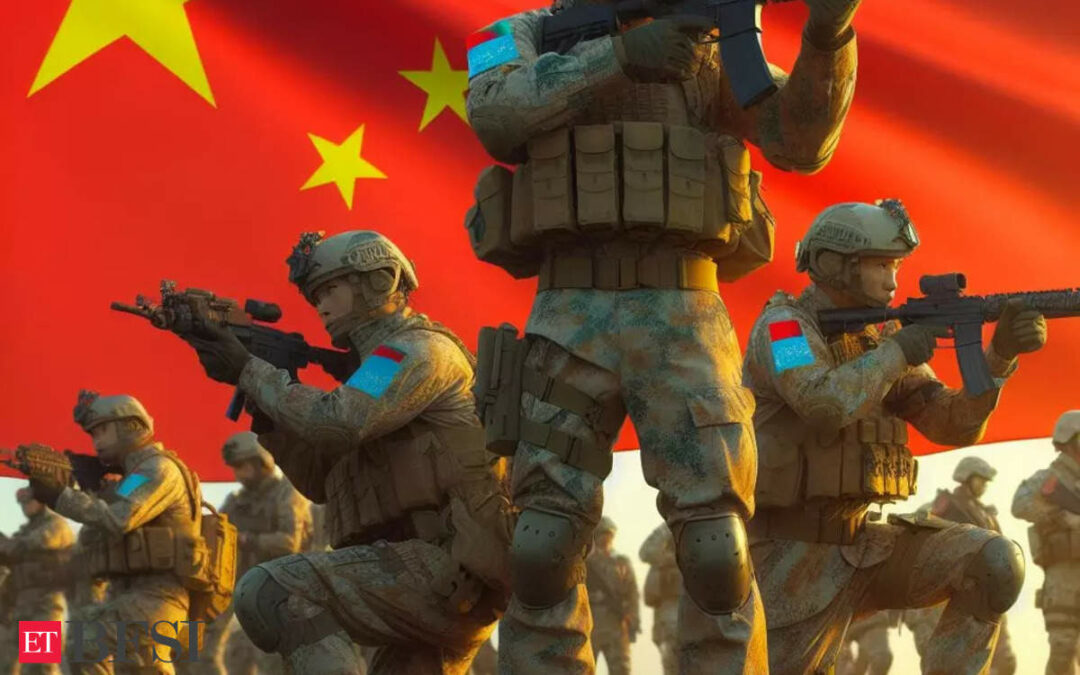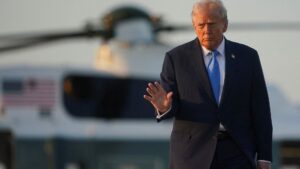Chinese companies are reviving a practice not seen since the 1970s by establishing their own volunteer armies, known as the People’s Armed Forces Departments. This move by Chinese firms, a ‘legacy of the Mao Zedong era’, reflects Beijing’s growing worries about social unrest and foreign threats.
Driving the news
- At least 16 major Chinese firms, including a privately-owned dairy giant, have established fighting forces over the past year, according to a CNN analysis of state media reports.
- These units, known as the People’s Armed Forces Departments(PAFDs), are composed of civilians who retain their regular jobs. They act as a reserve and auxiliary force for China’s military, the world’s largest, and are available for missions ranging from responding to natural disasters and helping maintain “social order” to providing support during wartime.
- The forces, which do not currently operate outside China, have more in common with America’s National Guard than its militia movement, which refers to private paramilitary organizations that usually have a right-wing political focus.
Why it matters
- The establishment of corporate brigades highlights Beijing’s growing concerns about potential conflict abroad as well as social unrest at home as the economy stumbles, analysts say.
- The revival is also seen as a part of Chinese leader Xi Jinping’s efforts to tighten Communist Party control over society, including the corporate sector.
- “The return of corporate militias reflects Xi’s rising focus on the need to better integrate economic development with national security as the country faces a more difficult future of slower growth and rising geopolitical competition,” said Neil Thomas, a fellow for Chinese politics at Asia Society Policy Institute’s Center for China Analysis.
- “Corporate militias under military leadership could help the Communist Party more effectively quell incidents of social unrest such as consumer protests and employee strikes,” he said.
The big picture
- Following the end of Covid restrictions in early 2023, China’s economy has not experienced a strong recovery.
- China’s economy grew 5.2% in 2023, slightly better than the official target that Beijing had set. But the country is facing a myriad of challenges, including a record property downturn, surging youth unemployment, deflationary pressure, rising corporate defaults and mounting financial stress at local governments.
- Protests appear to be spreading as frustration grows. The number of labor strikes and demonstrations surged to 1,794 in 2023, more than doubling from 2022, when 830 cases were recorded, according to data from the China Labour Bulletin, a Hong Kong-based non-profit organization that monitors workers’ protests.
- Just over a year ago, protesters clashed with police at the world’s biggest iPhone factory in Zhengzhou, as anger boiled over against Foxconn for reneging on promises to increase pay and benefits to attract workers back after the pandemic.
- Furthermore, China is encountering increased geopolitical difficulties, including deteriorating relationships with the United States, President Xi’s support for Vladimir Putin and the Russian invasion of Ukraine, and the nation’s growing military presence near Taiwan and in the South China Sea.
All about PAFDs
- Most of the companies that have so far announced militias have been state-owned enterprises (SOE), which are directly owned by central or regional governments.
- But in December, Yili Group, the world’s fifth largest dairy producer, became the first major privately-controlled Chinese company in recent history to set up a People’s Armed Forces Department unit.
- It did not provide any details about the strength of the force or the demographics of the employees who have joined up. According to China’s Military Service Law, male militia members should be 18 to 35 years old. There is some flexibility for people with special skills. Women are also eligible to join, though age requirements have not been provided in the law.
- Yili’s unit will be under the direct management of the People’s Liberation Army (PLA) garrison in Inner Mongolia, the area where the company is based, and the regional government’s Communist Party committee.
- The unit was formed to build a national defense force based at Yili, which can “serve in peacetime, cope with emergencies, and respond in wartime,” said Huang Zhiqiang, executive vice-chairman of Yili Group, in a statement.
- As per a Financial Times report, the Shanghai Municipal Investment Group, affiliated with the local government, started a Party and Armed Forces Department (PAFD) in September, following the example set by Mengniu, a major state-endorsed dairy competitor of Yili
- Last year, several other entities also announced the creation of PAFDs. These include the Wuhan Urban Construction Investment & Development Group, PowerChina Equipment Group, and Wuhan Metro. Additionally, in Guangdong province, Huizhou Water and Huizhou Transport Investment Group, along with Haian Urban Construction Development Investment Group in Jiangsu province, established their own PAFDs.
What they are saying
- One member of the PAFD in China’s Zhejiang province in the east, who preferred to remain anonymous, told FT that their group mainly concentrates on military training and recruiting initiatives, along with occasionally conducting military-oriented educational programs in schools.
- As per a report by Xinhua, the official news agency of China, Wu Qian, a spokesperson for the defence ministry, announced in October that the creation of PAFDs within state-owned companies is necessary to “fulfil national defence obligations and strengthen national defence construction”.
- As per the FT report, Timothy Heath, a senior international defence researcher at the Rand Corporation, described the establishment of PAFD across various locations as indicative of the leadership’s anxiety regarding internal social stability. He said, “The activation of these PAFD units is a symptom of the leadership’s concern about the domestic social stability situation,” adding, “Because it’s happening in so many places all at once, this is almost certainly being directed from the top down.”
- James Char, a specialist on China at the S Rajaratnam School of International Studies in Singapore, linked the renewed focus on PAFDs to the Chinese Communist Party (CCP) prioritizing ‘security’ above ‘development’.
- Timothy Heath from RAND Corporation told FT that the emergence of PAFDs was “definitely surprising.”
The bottom line
China’s corporate militias are a sign of the times, as the country faces growing uncertainty and challenges at home and abroad. They also reflect the increasing influence and reach of the Communist Party and the military in all aspects of Chinese society.
(With inputs from agencies)










